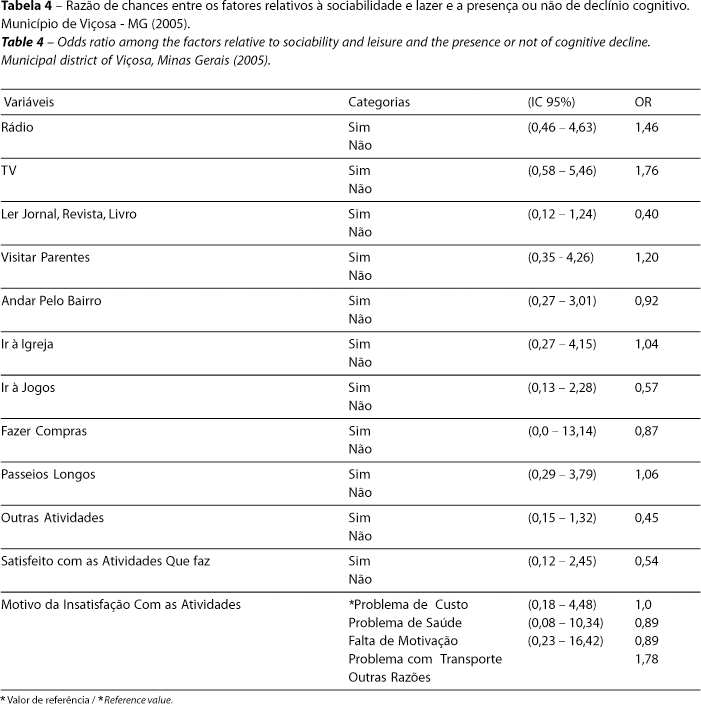INTRODUCTION: This study assesses cognitive decline in individuals 60 years of age and over, participants of a City Third Age Program (CPTA) in Viçosa, MG, and its relation with social and economic characteristics. METHODS: A cross-sectional analytical study was carried out with 74 elderly individuals. The study included literate individuals who filled out the following criteria: absence of visual or auditory loss, with some inclusions of corrected cases; absence of motor alterations, upper member paralysis or lack of members; absence of neurological or psychiatric problems affecting performance in the MMSE (Mini-Mental State Examination). Data collecting tools were a questionnaire prepared by the research team, and the MMSE. RESULTS: The frequency of cognitive decline was 36.5%. The average MMSE score was 19.48 points of a best total of 30, and the average age of the elderly was 68.5 years. DISCUSSION: The results showed that a lower level of schooling has a negative influence on the mental state of the elderly. CONCLUSION: A high number of elderly individuals with cognitive decline were identified, which is an unsettling factor. To conclude, the diagnosis of dementia in the elderly whose scores indicated cognitive decline needs more refined neurological and psychiatric evaluation.
Aged; Cognitive decline; Mini-Mental State Examination; Dementia



